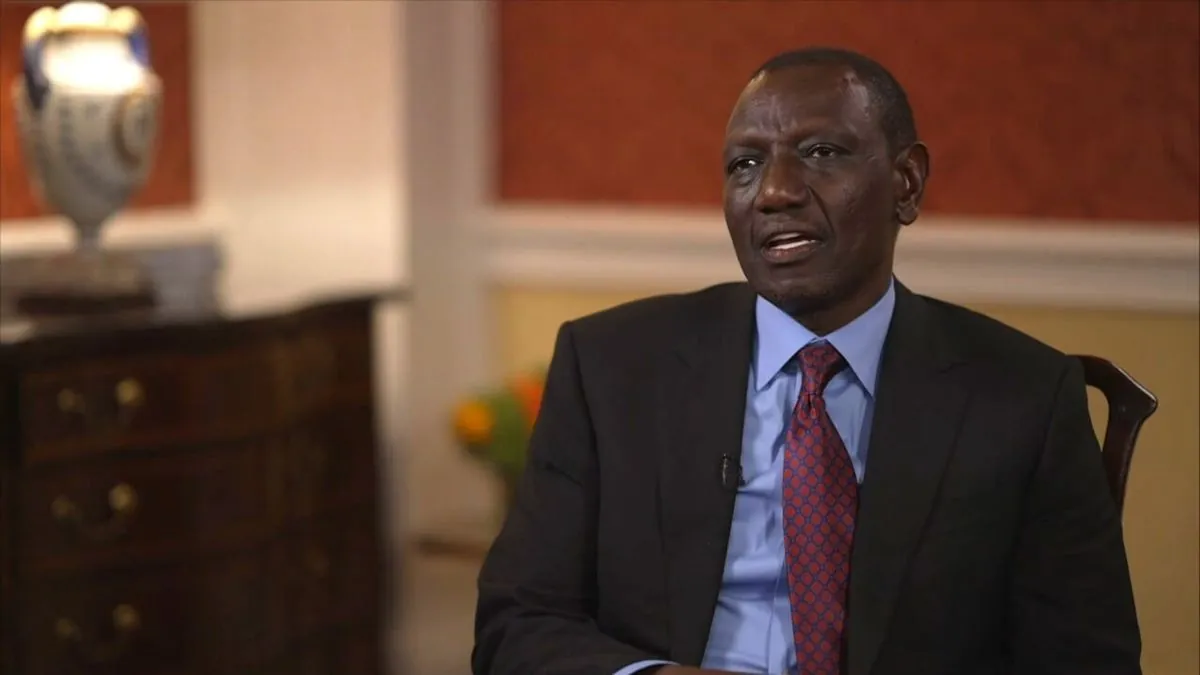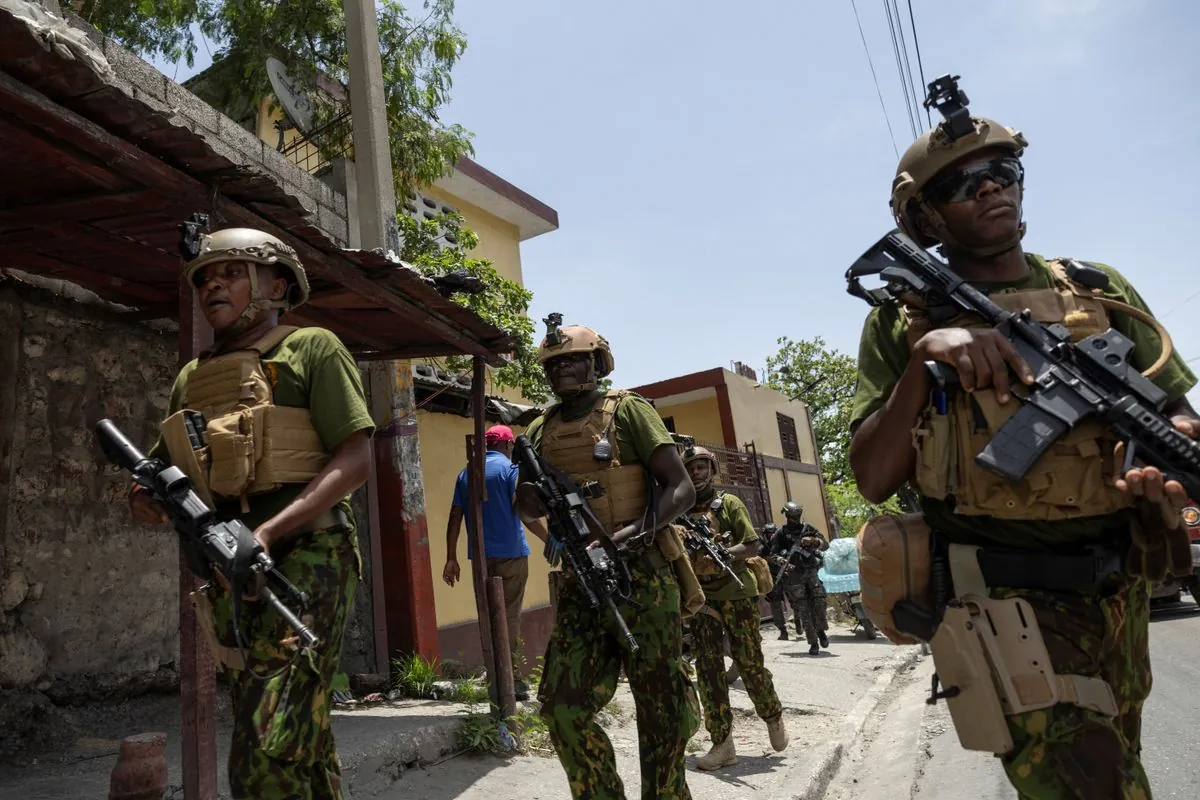Kenyan President Visits Haiti Amid Challenges in Peacekeeping Mission
Kenyan President William Ruto arrives in Haiti to support UN-backed peacekeeping efforts. The mission faces resource constraints as gangs control 80% of Port-au-Prince, while Haiti takes steps towards elections.

William Ruto, the President of Kenya, has arrived in Haiti as part of ongoing efforts to support a United Nations-backed peacekeeping mission. This visit comes at a critical time for the Caribbean nation, which has been grappling with widespread gang violence and political instability since the assassination of President Jovenel Moïse in July 2021.
Upon arrival, Ruto was greeted by armed officers and officials at the airport. He proceeded to a Kenyan base where he was expected to meet with police forces engaged in combating gang activity. Kenya has been at the forefront of international support for Haiti, with approximately 400 Kenyan police officers currently deployed in the country.

The peacekeeping mission, which aims to have a total of 2,500 personnel, has faced significant challenges. Despite contributions from Jamaica and pledges from other nations such as the Bahamas, Bangladesh, Barbados, Benin, and Chad, the force remains understaffed and under-resourced. The United States and other countries have expressed concerns that the current deployment is insufficient to effectively tackle the gangs that control about 80% of Port-au-Prince, Haiti's capital.
Haiti's struggles are deeply rooted in its complex history. As the first independent black republic, established in 1804, the country has faced numerous challenges throughout its existence. Political instability has been a recurring issue, with over 30 coups since independence. The nation has also been beset by natural disasters, including the devastating 2010 earthquake that claimed an estimated 220,000 lives and displaced 1.5 million people.
The current situation in Haiti is particularly dire, with approximately 60% of the population living below the poverty line. The country's economy heavily relies on remittances, which account for about 37% of its GDP. These economic challenges, combined with political turmoil and gang violence, have created a complex crisis that requires multifaceted international support.
A UN human rights expert recently warned that gang violence continues to spread across Haiti, with the national police lacking the necessary resources to combat this threat effectively. This highlights the urgent need for additional support and resources for the peacekeeping mission.
In a positive development, Haiti has recently established a provisional electoral council, a step long sought by the international community. This move paves the way for the country's first general election since 2016, potentially helping to restore order alongside the peacekeeping efforts.
While the idea of a UN peacekeeping force has been discussed, it remains controversial due to past incidents. During previous UN troop deployments in Haiti, there were cases of cholera introduction and sexual abuse, which have left a lasting negative impact on the perception of UN involvement in the country.
As Haiti continues to face these challenges, the international community must carefully balance the need for support with respect for the country's sovereignty and the well-being of its people. The success of the current peacekeeping mission and the potential for free and fair elections may prove crucial in determining Haiti's path towards stability and recovery.


































